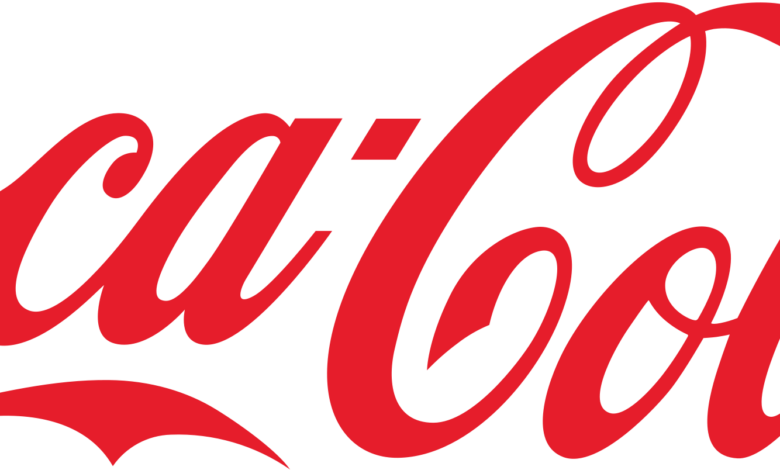https://clicpagado.blogspot.com/2024/04/coca-cola.html: Best Guide

https://clicpagado.blogspot.com/2024/04/coca-cola.html Few brands in history have achieved the cultural, economic, and emotional resonance that Coca-Cola holds. This iconic beverage company has transcended its roots to become a symbol of happiness, togetherness, and refreshment. As we dive deeper into the history, marketing strategies, and innovations of Coca-Cola, it becomes evident why this brand continues to dominate the global beverage market.
The Origins of Coca-Cola: A Recipe for Success
Coca-Cola was born in 1886 in Atlanta, Georgia, when Dr. John Stith Pemberton created a unique syrup combining coca leaf extract and kola nut. Initially marketed as a medicinal tonic, the beverage quickly transitioned into a refreshing drink, thanks to the entrepreneurial vision of Asa Griggs Candler, who acquired the formula and invested in widespread marketing. This foundational move set Coca-Cola on the path to becoming a household name.
The company’s recipe, famously guarded in a vault, remains one of the most well-kept trade secrets in history. Its unique flavor profile, coupled with its secretive allure, has kept consumers curious and loyal for generations.
Coca-Cola’s Pioneering Marketing Strategies
One of Coca-Cola’s key differentiators lies in its groundbreaking marketing campaigns. From the earliest newspaper ads to today’s digital-first strategies, Coca-Cola has always been ahead of its time. Some of the brand’s most iconic marketing efforts include:
- “Share a Coke” Campaign: By personalizing bottles with names, Coca-Cola created an emotional connection with consumers, boosting sales and social media engagement worldwide.
- Timeless Holiday Advertisements: Coca-Cola’s Christmas campaigns featuring Santa Claus helped shape the modern depiction of Santa and solidify the brand’s association with festive joy.
- Sponsorships and Partnerships: From the Olympics to FIFA World Cup, Coca-Cola has strategically aligned itself with globally cherished events, ensuring constant visibility.
These strategies, combined with consistent messaging focused on positivity and connection, have kept Coca-Cola relevant across generations.
Product Diversification: More Than Just a Soda
While Coca-Cola is synonymous with its flagship soda, the company’s extensive portfolio includes a variety of beverages to cater to evolving consumer tastes. These include:
- Diet and Zero-Sugar Options: Products like Diet Coke and Coca-Cola Zero Sugar address health-conscious consumers without compromising on flavor.
- Water and Hydration: Brands such as Dasani and Smartwater demonstrate Coca-Cola’s commitment to offering healthier hydration options.
- Juices, Teas, and Energy Drinks: With acquisitions like Minute Maid, Honest Tea, and Monster Energy, Coca-Cola has expanded its reach into multiple beverage categories.
This diversification not only reduces dependency on soda sales but also ensures the brand’s adaptability in an increasingly health-aware marketplace.

Global Reach and Local Adaptation
Coca-Cola operates in over 200 countries, a feat achieved through a masterful balance of global consistency and local customization. The brand’s “Think Global, Act Local” approach allows it to resonate with diverse cultural preferences. For example:
- In Japan, Coca-Cola introduced unique flavors like Sakura and Green Tea Coke.
- In India, the brand revived Thums Up, a local cola favorite, to compete in the regional market.
- In Mexico, the use of cane sugar instead of high-fructose corn syrup caters to local taste preferences.
This ability to adapt while maintaining a cohesive global identity is a cornerstone of Coca-Cola’s success.
Sustainability and Social Responsibility
As one of the world’s largest beverage companies, Coca-Cola recognizes its responsibility to contribute positively to society and the environment. Some of its key initiatives include:
- World Without Waste: A commitment to collect and recycle every bottle or can sold by 2030, promoting a circular economy.
- Water Stewardship: Coca-Cola has implemented programs to replenish water sources and improve water access in underserved communities.
- Diversity and Inclusion: The company actively promotes diversity within its workforce and partners with organizations supporting equity and inclusion.
These efforts not only reflect Coca-Cola’s dedication to ethical business practices but also resonate with socially conscious consumers.
Innovations Driving the Future of Coca-Cola
Coca-Cola continually invests in innovation to meet changing consumer demands and stay ahead of competitors. Some notable advancements include:
- Smart Packaging: Coca-Cola leverages technology to create interactive and sustainable packaging solutions, enhancing user engagement.
- Digital Transformation: The brand uses AI and data analytics to optimize marketing strategies, predict trends, and personalize consumer experiences.
- Product Innovation: Limited-edition flavors and collaborations with popular brands keep the product line fresh and exciting.
These innovations ensure Coca-Cola remains a leader in an ever-evolving industry.
Coca-Cola’s Cultural Impact
Beyond its commercial achievements, Coca-Cola has ingrained itself in global culture. From its role in pop art, such as Andy Warhol’s famous Coke paintings, to its presence in films and music, Coca-Cola is more than a beverage; it’s a symbol of shared moments and universal joy.
Conclusion: Coca-Cola’s Legacy and Continued Dominance
Coca-Cola’s journey from a small Atlanta pharmacy to a global powerhouse is a testament to visionary leadership, innovative marketing, and a commitment to quality. By staying true to its core values while embracing change, Coca-Cola has secured its place as a timeless icon. As the brand continues to innovate and inspire, it remains a shining example of enduring success.



